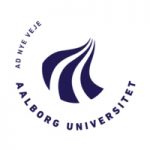项目介绍
The PhD is offered by the Department of Chemistry as a full or part-time period of research and introduces students to research skills and specialist knowledge.
Please note: part-time study may not always be viable and will be considered on a case-by-case basis, so please discuss this option with your proposed supervisor before making an application for this mode of study. There are attendance requirements and part-time students will need to live close enough to Cambridge to fulfil these.
Students are integrated into the research culture of the Department by joining a research group, supervised by one of our academic staff, in one of the following areas of chemistry:
Biological Chemistry
Life is the chemistry that goes on inside every one of us. We seek to understand this chemistry, both the physical processes occurring at the molecular level and the chemical reactions, and we also seek to control the chemistry as a way to treat diseases. Biological Chemistry at Cambridge comprises several research groups with additional contributions from many more. The major themes are biological polymers, proteins and nucleic acids – how they interact with each other and with small molecules. How do proteins fold to a defined structure and why do they sometimes not fold properly but aggregate causing neurodegenerative diseases? How do proteins catalyse the reactions that they do and can we make small molecules that inhibit these processes? What structures can nucleic acids adopt? How can we detect and what is the role of modifications of individual nucleotides? How can we target medicinally active compounds to where they are needed in the body? By addressing these questions, we seek to improve human health and the treatment of diseases.
Materials Chemistry
The technological devices that we depend on, from aeroplanes to mobile phones, rely upon ever-increasing structural complexity for their function. Designing complex materials for these devices through the art of chemical synthesis brings challenges and opportunities. Members of the Materials Research Interest Group invent new materials to explore and develop fundamental concepts in view of potential applications. Our studies thus include surfaces, interfaces, polymers, nanoparticles and nanoporous materials, self-assembly, and biomaterials. We investigate applications relevant to carbon dioxide capture and reduction, catalysis, photovoltaics, fuel cells and batteries, crystallisation and pharmaceutical formulation, energy, molecular encapsulation, and sensors.
Physical and Atmospheric Chemistry
Physical Chemistry at Cambridge has two broad but overlapping aims. One is to understand the properties of molecular systems in terms of physical principles. This work underpins many developing technological applications that affect us all, such as nanotechnology, sensors and molecular medicine. The other is atmospheric chemistry where the interactions between chemical composition, climate and health are studied using a range of computer modelling and experiment-based approaches. Together these two areas form a richly interdisciplinary subject spanning the full range of scientific methodologies: experimental, theoretical and computational. It is the research area with something for everyone.
Synthetic Chemistry
Synthetic research at the University of Cambridge is focussed on the development of innovative new methods to make and use molecules of function. Ranging from the innovative catalytic strategies to make small molecules, to supramolecular assemblies or the total synthesis of biologically important compounds, our research is diverse, pioneering and internationally leading. The dynamic environment created by the research groups working at the cutting edge of the field makes postgraduate research at Cambridge the best place for outstanding and motivated students.
Theoretical Chemistry
Research in Theoretical Chemistry covers a wide range of length and timescales, including active development of new theoretical and computational tools. The applications include high-resolution spectroscopy, atomic and molecular clusters, biophysics, surface science, and condensed matter, complementing experimental research in the Department. We develop new tools for quantum and classical simulations, informatics, and investigate molecules using descriptions that range from atomic detail to coarse-grained models of mesoscopic matter. This work often begins with analytical theory, which is developed into new computer programs, applied to molecules and materials of contemporary interest, and ultimately compared with experiment.
Potential supervisors and their area of research expertise may be found on the Research page on the Department of Chemistry website.
Educational aims of the PhD programme:
- Give students with relevant experience at master’s level the opportunity to carry out focussed research in the discipline under close supervision.
- Give students the opportunity to acquire or develop skills and expertise relevant to their research interests.
- Provide all students with relevant and useful researcher development training opportunities to broaden their horizons and properly equip them for the opportunity which they seek following their PhD studies.
Learning Outcomes
By the end of the programme, students will have
- a comprehensive understanding of techniques, and a thorough knowledge of the literature, applicable to their own research;
- demonstrated originality in the application of knowledge, together with a practical understanding of how research and enquiry are used to create and interpret knowledge in their field;
- shown abilities in the critical evaluation of current research, research techniques and methodologies;
- demonstrated some self-direction and originality in tackling and solving problems, and acted autonomously in the planning and implementation of research; and
- taken up relevant and highly useful researcher development training opportunities to develop skills and attributes for their desired future career.
Continuing
MPhil students currently studying a relevant course at the University of Cambridge will need to pass their MPhil course (if examined by thesis) or obtain minimum merit (if there is a marked element) in order to be eligible to continue onto the PhD in Chemistry.
录取要求
-
Applicants for this course should have achieved a UK Masters (Pass).
联系方式
电话: +44 (0)1223 337733相关项目推荐
KD博士实时收录全球顶尖院校的博士项目,总有一个项目等着你!





